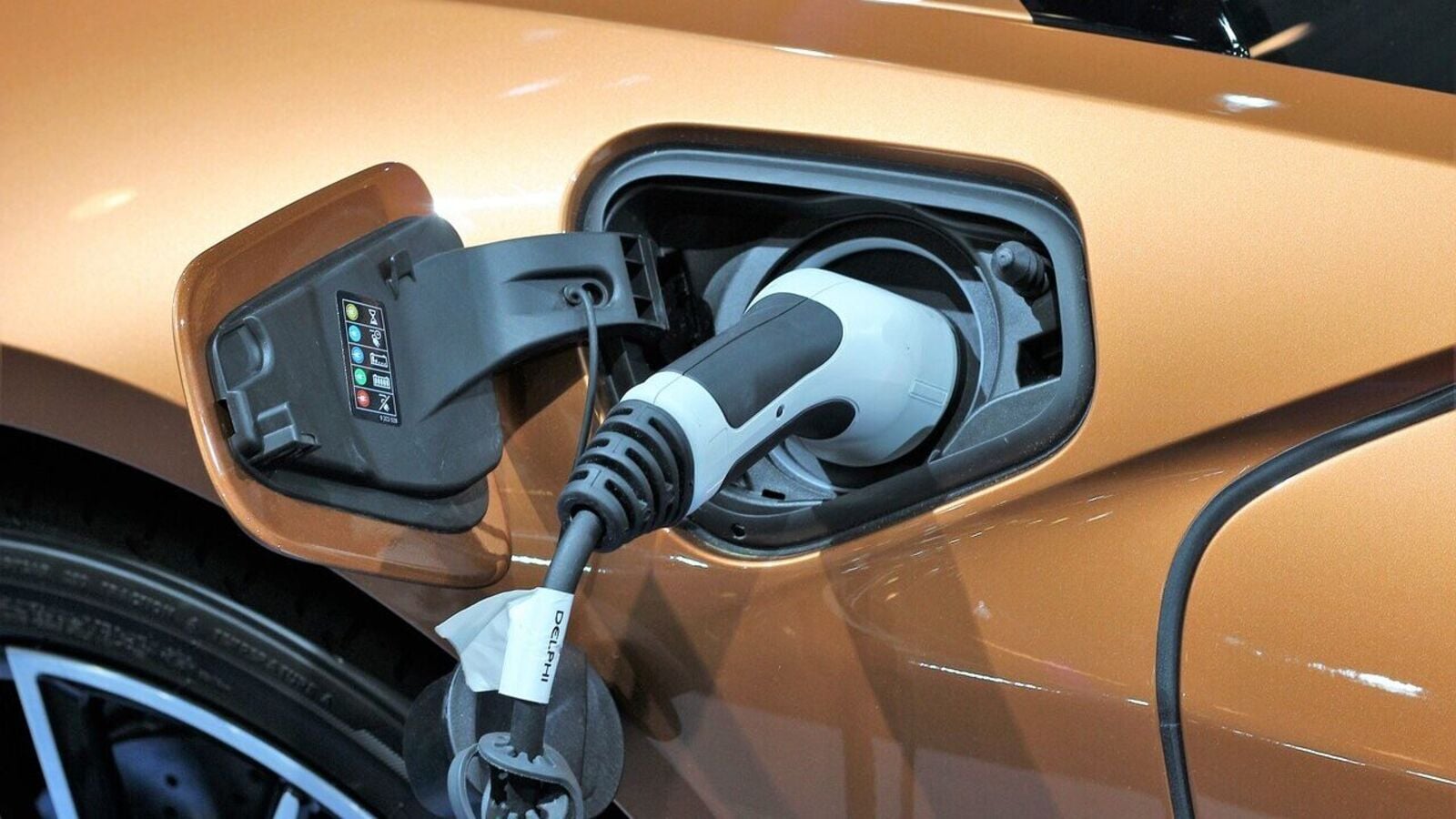“Because Bhel is the Nodal Agency for demand aggregation of EV charging stations, it is likely that it will also play a key role in offering these charging stations to interested stakeholders,” said the first of the aforementioned persons who both spoke about the condition of anonymity.
If the Nodal Agency would be a pricing discovery an important function of BHEL in its new role in the developing EV space of India, the second person said.
Also read: EV VS Hybrid War: All clean fuel-terded vehicles are the same for the PMO
Bhel's stock ended little changed £253.55 on the BSE on Friday.
This assumes importance if the PM-E-Drive schedule, the center of the center to stimulate green mobility for consumers, has assigned approximately one fifth of the expenses. £2,000 crore – to subsidize charging stations for electric vehicles.
Mint Earlier reported about the Ministry of Heavy Industry that collaborated with the Ministries of Road Transport and motorways, civil aviation and power to identify locations to set up these EV charging stations.
PM Electric Drive Revolution in Innovative Vehicle Enhancement (PM E -Drive) schedule, with a financial edition of £10,900 Crore, taken into operation on October 1, 2024 and will remain in force until 31 March 2026. The most important goal is to accelerate the acceptance of electric vehicles, set up a charging infrastructure and to build a robust EV production system in the country.
According to the scheme, the government intends to stimulate charging stations for electric two -wheelers, tricycles, buses and trucks. These chargers must have a minimum capacity of 12 kilowatts for electric two and tricycle, 60 kilowatts for electric four-wheelers and 240 kilowatts for electric buses and trucks.
The plan includes stimulating 22,100 chargers for electric four-wheelers, 48,400 for electric two and tricycle and 1,800 for electric buses and trucks.
Also read: Will the unsafe e-rickshaws of India finally be confronted with the crash test?
The Ministry of Heavy Industry on 21 May said in a press statement that Bhel is considered the Nodal Agency for Demand Aggregation and for the development of a Unified Digital Super app that will serve as a single platform for EV users throughout India.
“The app will contain real-time final booking, payment integration, status of the availability of charging and progress dashboards for following national implementation under the PM E-Drive schedule. BHEL will also coordinate with states and ministries to compile and evaluate proposals for charging installations,” said the statement on 21 May.
Queries emailed to the Ministry of Heavy Industry and Bhel remained unanswered until time on Friday.
According to the procedure for setting up EV chargers under the PM E-Drive scheme, national governments and central ministries can submit an offer to EV charging stations to the Ministry of Heavy Industry after collecting demand and conducting feasibility studies. This will be done by a junction office appointed by the state government or the central ministry.
Question aggregation refers to the collection of the requirement of stakeholders to determine the volume of EV charging stations installed by states or by central ministries.
According to the guidelines for the installation of EV loading stations, the availability of land is a great concern. “In addition to the Capex charger and the corresponding need for electricity infrastructure, an important component is land availability. Access to land and high land rental are presenting major obstacles when deploying charging infrastructure,” said the guidelines.
State governments and central ministries that try to install charging stations “can offer access to land at suitable locations for EV charging stations by coordinating various stakeholders under their control,” said the guidelines. According to the guidelines, this would encourage the operators of charging points and other stakeholders to install characters at locations with high rents.
State governments and central ministries must surrender their requirement of EV -charging points for approval to the Ministry of Heavy Industry. After being approved, the Knooppuntbureau that has carried out the demand and feasibility studies will start the tendering process.
According to the guidelines, it can decide by the state government or the Central Ministry of the Nodal Agency who will be the Procurement Authority (TIA). The Nodal Agency itself can also be the TIA, but can appoint another agency on his behalf.
The tender includes identified locations for EV charging stations, minimum charger configurations, available area and the bid parameters to be followed. After successful bids by operators of charging points and assessment by the Ministry of heavy Industries, a subsidy for charging stations in installments is paid.
Also read: e-buses under PM E-drive that must now be used for intercity, tourist trips
According to the PM E-Drive scheme, the government will finance up to 80% of the electricity costs for setting up an EV charging station. But under special circumstances, according to the guidelines, the government can finance the full costs of a charging station.
The green mobility spush of India has gained strength, but continues to be confronted with obstacles with regard to EV -charging infrastructure. “De beweging Electric Vehicle (EV) wint onmisbaar momentum, aangedreven door de interesse van de consument voor duurzaamheid en kostenvoordelen op lange termijn. Toch blijven barrières zoals het opladen van infrastructuur, upfrontkosten en de levensduur van de batterij blijven consumenten beïnvloeden,” zei Rajat Mahajan, partner- en automotive sectorleider, Deloitte India, in april in de lancering van de 2025 Global Automotive Consumer Study India. The study showed that 36% of Indian consumers gave priority to fast charging for EVs.
